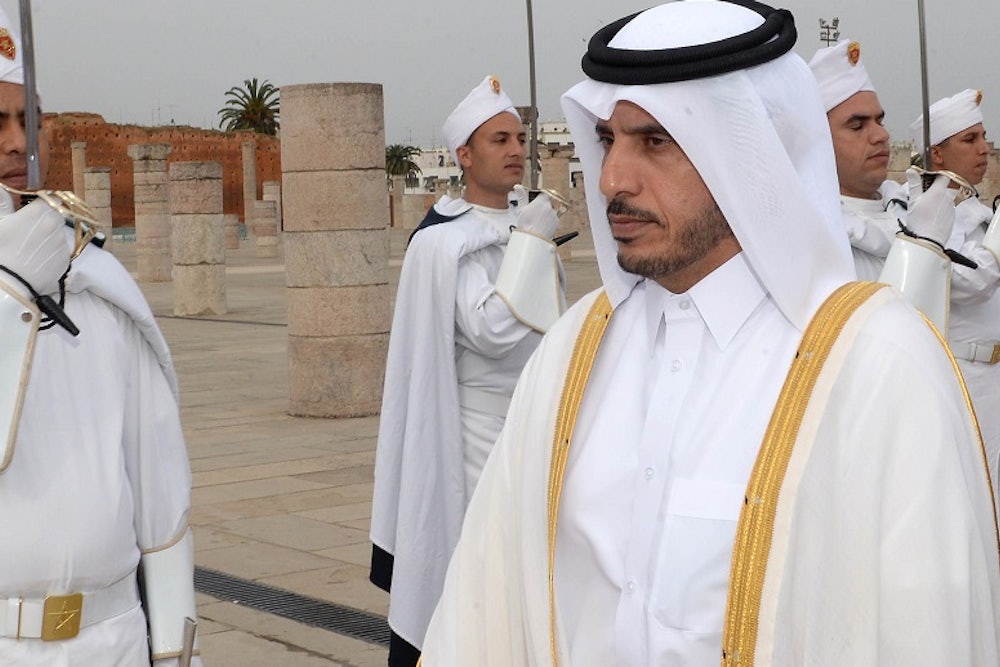The 2022 World Cup, which will be held in the Persian Gulf emirate of Qatar, is more than eight years away. But it is already making a lot of news—and not the sort of news the oil-rich nation hoped to make when it landed the tournament.
ESPN conducted a special investigation into the human rights abuses in Qatar as part of its E:60 documentary series. The investigation, E:60: Trapped in Qatar, offers a behind-the-scenes look at the living and working conditions of the mainly migrant workers who have been building the massive new infrastructure that will allow a nation the size of Connecticut to host a tournament usually spread across host countries the size of Brazil, South Africa, or the United States.
Since Qatar has only 278,000 nationals, the labor is imported from poor countries like Nepal, the Philippines, India and Sri Lanka. ESPN's alarming account reports that, in the last year alone, 184 Nepali migrant workers died from “cardiac arrest” caused by the working conditions and extreme heat. That’s only Nepalis. The documentary estimates that, at the current rate, more than 4,000 migrant workers will die by the time Qatar puts on the 2022 World Cup.
The scariest part is that ESPN’s calculation is at the current rate. So far, Qatar has only broken ground on one new stadium. By 2022, it needs to construct 12 of them. What happens when Qatar falls behind on construction, as every country hosting a major tournament does?
The Qatari government denies that any worker has died on projects for the World Cup. Instead, they say that those deaths occurred on separate construction and infrastructure projects. Even if that were the case—which is highly unlikely based on the E:60 documentary—the high number of deaths would be infuriating. It’s telling that the Qatari government only denies that the deaths occurred on World Cup projects. They freely admit that the deaths have happened.
On Friday, when FIFA President Sepp Blatter was asked whether selecting Qatar as a host country—done in an incredibly shady process—was a mistake, Blatter replied, “Of course.” But the reason Blatter now regrets giving the 2022 World Cup to Qatar has nothing to do with the violations that ESPN revealed. Rather, he said he was worried about the professional athletes who would be playing the games in the extreme heat. That's outrageous.
Contrast the scene in Qatar with that of this year's host. Eight construction workers have died in Brazil in preparation for the World Cup next month. That comparatively puny number has provoked outrage from both those within and outside the country.
There is no reason that FIFA cannot rescind Qatar’s right to host the 2022 World Cup and assign it to another country. Eight years is enough time to design and build stadiums to host the games, particularly if the country already has significant infrastructure in place. By refusing to do so, FIFA is abetting the deaths of these migrant workers. How many Nepalis should die for a soccer tournament?
This article has been updated.
